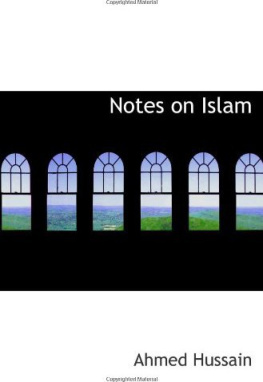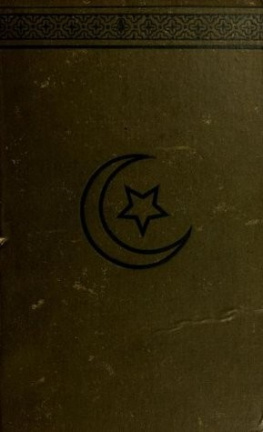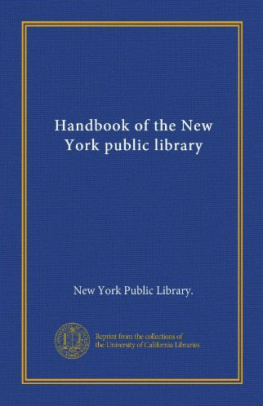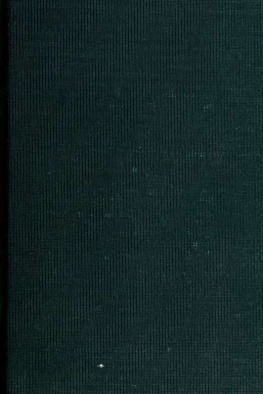The Project Gutenberg EBook of Notes on Islam, by Ahmed Hussain
This eBook is for the use of anyone anywhere at no cost and with
almost no restrictions whatsoever. You may copy it, give it away or
re-use it under the terms of the Project Gutenberg License included
with this eBook or online at www.gutenberg.org
Title: Notes on Islam
Author: Ahmed Hussain
Editor: Khan Bahadur Hajee Khaja Muhamma Hussain
Release Date: April 30, 2008 [EBook #25254]
Language: English
*** START OF THIS PROJECT GUTENBERG EBOOK NOTES ON ISLAM ***
Produced by Turgut Dincer, Michael Ciesielski and the
Online Distributed Proofreading Team at http://www.pgdp.net
(This file was produced from images generously made
available by The Internet Archive)
NOTES ON ISLAM
BY
SIR AHMED HUSSAIN, K.C.I.E., C.S.I.
(NAWAB AMIN JUNG BAHADUR)
Collected and Edited
by
Khan Bahadur Hajee Khaja Muhammad Hussain
"The fear of the Lord is the beginning
of knowledge."Proverb
HYDERABAD, DECCAN
GOVERNMENT CENTRAL PRESS
1922
ALL RIGHTS RESERVED
TO
THE MEMORY
OF
K. AMJUD HUSSAIN.
One of the four for whom these Notes
were first written,
in 1917.
FOREWORD
The following Notes were enclosed by the author in his weekly letters to his brother and sons who were students in the Universities of Cambridge, Edinburgh and Birmingham. I persuaded him to allow me to have them printed, as I thought they were suggestive and useful. He has however desired me to say that they should not be regarded as anything but concise memoranda jotted down (at short intervals between the busy hours of his official life) as general answers to questions put to him. They contain some passages which are too concise or abstract, if not vague or enigmatic. But, the author says, he left them designedly so in order to induce his readers to try to understand them or at least to seek explanation and illustration. Numerous foot-notes have been added for the same purpose.
He frankly admits that his view of Islam is neither quite orthodox nor quite heterodox but something midway between the two. It was put forward in order to make his boys think for themselves and argue with him. The first three Notes may be 'skipped' at the first reading.
Sincere acknowledgments are due to Nawab Imad-ul-Mulk Bahadur Bilgrami, c.s.i. , Mr. J.C. Molony, i.c.s. , Khan Bahadur Abdur Rahim, b.a. , b.l. , Mr. Syed Ross Masood, m.a. , and others who very kindly read the proofs and favoured the author with valuable suggestions.
| Banganapalle, |  | K.M.H. |
| 11th August 1922. |
Duty is Deity Work is Worship.Sanskrit Proverb
CONTENTS
| Page |
| Foreword |
| Muslim Prayer |
| Note | 1. Introduction |
| " | 2. The First Chapter of the Qur'an |
| " | 3. What is Religion? |
| " | 4. What is true Islam? |
| " | 5. What is not Islam |
| " | 6. "Islam" and "Not-Islam" |
| " | 7. Why is Islam the Best Religion? |
| " | 8. Unity & Union |
| " | 9. Perfection & Self-help |
| " | 10. Moderation & via media |
| " | 11. Evolution & Survival |
| " | 12. "Religion begins with the Fear of the Lord and ends in the Love of Man" |
| APPENDIX |
| Muslim Reformation |
| Our Prayer |
Worship Truth Love Humanity.Islamic Maxim
THE MUSLIM PRAYER.
Surai Fatiha
Praise be to Thee my God, Lord of the Worlds! O Merciful, Compassionate art Thou! The King of all on Day of Reckoning, Thee only do we worship and adore, To Thee, most merciful, we cry for help; O guide us ever more on the straight path, The path of those to whom Thou gracious art On whom Thine anger falls not then nor now, The path of them that from Thee go not stray. Amen.
Grant that the knowledge I get may be the knowledge worth having.Thomas a Kempis.
NOTES ON ISLAM
Note 1.
Introduction.
 WO of youLateef and Altafwill recollect that more than a year ago you wrote to me saying that you were puzzled by certain questions which a Missionary had put to you. I remember that Amjud or Mahmood even went so far as to ask what was the good of Islam, when countries and people professing that faith had weak governments and were crumbling to pieces under the influence of Christian Powers. I answered your queries only in a general way as your University education had not then advanced far enough. But I think the time has now come when I should try to explain to you what I conceive to be the true spirit of the religion of our fore-fathers.
WO of youLateef and Altafwill recollect that more than a year ago you wrote to me saying that you were puzzled by certain questions which a Missionary had put to you. I remember that Amjud or Mahmood even went so far as to ask what was the good of Islam, when countries and people professing that faith had weak governments and were crumbling to pieces under the influence of Christian Powers. I answered your queries only in a general way as your University education had not then advanced far enough. But I think the time has now come when I should try to explain to you what I conceive to be the true spirit of the religion of our fore-fathers.
I firmly believe that Islam is the best. The poet Hafiz rightly stigmatised their vain controversies when he said that "since they did not see the fact, they ran after fiction."
I am more than ever convinced of two characteristics of Islam:
1st.It is not inconsistent with true Christianity, or with any other true religion
2nd.It conforms to modern scientific ideas better than any other religion.
I have already explained, in some of my letters we clearly see that they teach the same sublime truths as our Prophet himself inculcated. Jesus did not live long to complete his mission, Muhammad completed it. Both were God's holy messengers . Says the Qur'an: "This day I have completed your religion for you."
I need not now go into details, or refer to other religions, to shew that the spirit of Islam is not inconsistent with their true spirit, if rightly conceived and interpreted in the light of modern science. I hope I shall be able some day to write down the result of my own thought and investigation in the matter. I content myself at present with drawing your attention to the first characteristic of Islam, and I propose to write a few Notes to draw your special attention to its second characteristic which is the more remarkablethe characteristic that it is quite consistent with modern ideas of science.
No scientific idea influenced the thought of the last century more profoundly than the idea of progress or development embodied in what is called the Law of Evolution. It is now widely accepted. You will be surprised to know that many an Islamic tenet is entirely in accord with it. Indeed Maulana Rumi outlined it poetically in his famous Masnavi in the thirteenth century, in the same manner as Lord Tennyson did in his Princess in the nineteenth. I desire that you should try to understand it in its modern form. I strongly recommend that you should read an admirable book by Edward Clodd called The Story of Creation. When I first read it, some years ago, I felt it was as pleasant and interesting as a novel. Its introduction and Part II are quite easy to read. They will give you a very good idea of the great revolution which Darwin and Wallace, Huxley and Spencer have wrought in the thought of our own times.









 WO of youLateef and Altafwill recollect that more than a year ago you wrote to me saying that you were puzzled by certain questions which a Missionary had put to you. I remember that Amjud or Mahmood even went so far as to ask what was the good of Islam, when countries and people professing that faith had weak governments and were crumbling to pieces under the influence of Christian Powers. I answered your queries only in a general way as your University education had not then advanced far enough. But I think the time has now come when I should try to explain to you what I conceive to be the true spirit of the religion of our fore-fathers.
WO of youLateef and Altafwill recollect that more than a year ago you wrote to me saying that you were puzzled by certain questions which a Missionary had put to you. I remember that Amjud or Mahmood even went so far as to ask what was the good of Islam, when countries and people professing that faith had weak governments and were crumbling to pieces under the influence of Christian Powers. I answered your queries only in a general way as your University education had not then advanced far enough. But I think the time has now come when I should try to explain to you what I conceive to be the true spirit of the religion of our fore-fathers.